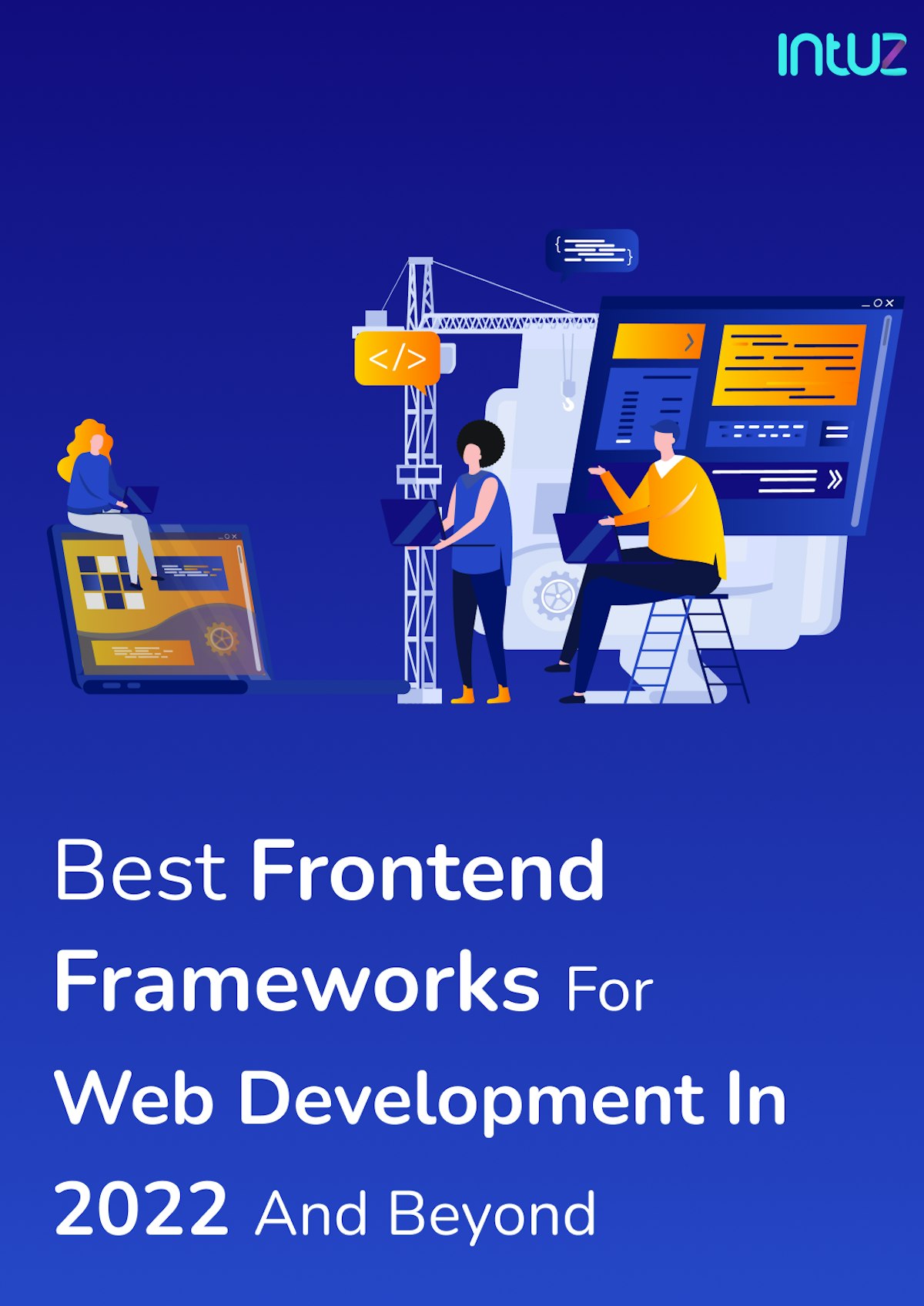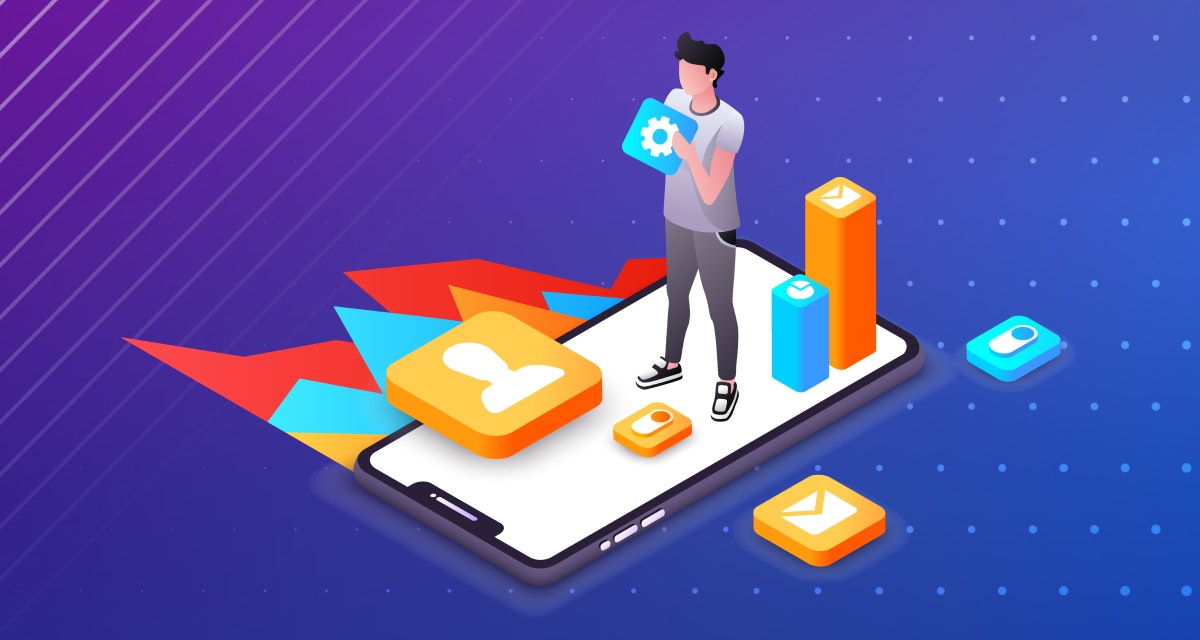When many businesses think of building an app, their mind goes straight to cross-platform app development. This should not come as a surprise since it enables developers to build apps for different platforms with a single codebase, thus saving time, money, and effort. As of today, roughly 1/3rd of mobile developers use cross-platform frameworks.
The good news is there are many cross-platform development tools that you can use — depending on what you want your app to achieve, your budget and timescales. But when that is the case, selecting the most appropriate tool for your development process becomes challenging. But do not worry!
12 most popular cross-platform development tools
In this article, we will look at 12 most popular cross-platform development tools that are creating a buzz in the market in 2023:
1. Flutter
Flutter is a by-product of Google , making it a sustainable software development kit [SDK] for developing web-based applications. Its iconic 'Hot Reload' feature facilitates developers to view live variations in the coding without saving it.
It helps build high-performance apps on Android, iOS, desktop, and web from a single codebase. Launched in May 2017, Flutter has quickly become a favorite of developers as it allows them to customize the apps using slick animations.
It also utilizes the programming language Dart, which can be easily understood by Java developers. Flutter also offers many widgets that help in enhancing the look of an app. They can help developers provide a full native-like app performance to the users — from scrolling and navigation to changing fonts and icons.
Famous brands or apps using Flutter: Google Ads, Alibaba
2. React Native
Written in JavaScript, React Native is one of the best mobile app development tools for creating apps for both Android and iOS. It interprets the source code and converts it into native elements in a shorter time frame.
Not only is it highly compatible with secure third-party plugins, but it also takes up little space in memory. React Native simplifies the app development process and ensures that businesses can launch an app on both platforms promptly without compromising quality.
Introduced by Facebook in March 2015, React Native is preferred by a whopping 42% of developers for developing apps. It enables them to write modules in various native languages such as Java, Swift, C++, Objective, and Python.
Moreover, it lets you do other exciting activities, including video processing and image editing—both of which are not possible with other API frameworks. React Native is the perfect choice for startups, small-sized businesses, and even large enterprises.
Famous brands using React Native: Facebook, Walmart, Uber Eats, Skype, and Instagram
3. Adobe PhoneGap
Adobe PhoneGap is an open-source framework ideal for building cross-platform mobile apps in HTML, CSS, and JavaScript for iOS, Android, Blackberry, and Windows. This is a handy tool for those developers who are building a cross-platform app for the first time.
PhoneGap's debugging tools help you inspect the codebase in JavaScript and continuously collaborate with others to improve the app performance continually. It enables swift app delivery on the most updated SDK because it lets you reuse existing web dev skills and frameworks rather easily.
Moreover, you can gain access to app-store ready apps without the headache of maintaining native SDKs. It lets you focus on what is more critical while building apps — strategy, features, tech stack. That not only saves time but also shortens the development cycle.
In addition, PhoneGap's 'Hydration' feature allows you to streamline app development by pushing updates to the users who have tested the app previously. This ensures that everyone works on the most recent version, thus eliminating any delays in the process.
Famous brands using Adobe PhoneGap: Accenture, Typeform, Angry Ventures, GoGoVan
4. Appcelerator
One of the most easy-to-use iOS app development tools, Appcelerator's mantra is to build great mobile experiences faster. That is possible because this cross-platform development tool allows you to write a single JavaScript code to build native-like apps for both Android, Windows, and iOS with cloud-like performance.
Its open-source development framework makes Appcelerator agile and most suited for repairing glitches through automated mobile testing. Measuring app usage and results of the app project are made easy — thanks to this phenomenal framework.
You can detect bugs, crashes and also make other amends to boost the app's performance. Appcelerator developers use Hyperloop, an impressive cross-platform API that enables you to use APIs of Android and iOS using JavaScript directly.
Over time, Appcelerator has built a vibrant community of more than 200,000 developers. This framework has been applied in 35,000 apps so far. With this tool, you are also bound to get mobile-optimized access to any data source.
Famous brands using Appcelerator: Comerica Bank, The Body Shop
Sensors help us collect a myriad of data & are leveraged in various fields!
Take Me To The Guide5. Xamarin
Xamarin is an open-source platform and one of the top Android app development tools that also builds apps on iOS and Windows. Launched by Microsoft, developers can use their Microsoft Visual Studio license to access Xamarin, built with C# — a shared codebase for producing high-performance apps.
The apps built on this cross-platform development tool look and feel like native apps, and that is because Xamarin uses native interfaces that work in the way users want to use them. It also comes with a plethora of features such as code editing, UI designing, and debugging.
Moreover, it accelerates the app development process with its single codebase. You will especially like working on Xamarin if you are a .NET developer. That is because its test cloud allows you to run tests for thousands of devices with 100% reusability of code.
Famous brands using Xamarin: AOX, MRW, Alaska Airlines, Oro
6. Safari web inspector tools
Millions of Apple users enjoy exploring the web with Safari. What if you want to modify, debug, and optimize a website for the browser? You use Safari's Web Inspector!
It is the command centre that aids you in inspecting all of the resources and activities on a web page, thereby making development more effective across various Apple platforms such as iOS, macOS, and tvOS.
It facilitates cross-platform frameworks with a unified design that puts each core function in a separate tab. You can rearrange to suit your workflow and debug memory using Timelines and adjust 'styles' using widgets showcasing CSS properties.
There is also a "Debugger" feature that helps you look for any JavaScript errors on the webpages. Besides, you can preview how your web pages look on different screens, resolutions, and orientations.
Safari's Web Inspector Tool is handy for those developers whose primary target audience aggressively uses Apple products in their daily lives.
7. Qt
Qt is a cross-platform software development tool for the desktop and embedded services where you can code using C++ and export once the coding is complete.
Its modern UI features comprise a comprehensive set of libraries ideal for cross-platform development and ready-made functionality. Another USP is Qt's interface, which enables you to run, test, and make changes in the code hassle-free.
Plus, if your app is not performing well and you want to rework it, it is possible to make changes to it in real-time without disturbing its foundation. There are several benefits of using Qt:
- Access to well-tested libraries to develop your code feature
- Ability to shorten the codebase
- Opportunity to decrease the testing burden and debug visually for enhanced code stability
You can also write the code swiftly using its built-in documentation, extensible IDE, and easy-to-use APIs. Unlike other cross-platform development tools, it has a simple interface, making it a hot favorite among amateur developers.
Famous brands using Qt: AirServer, BOSCH, Gimasi, LG, Ubuntu, Novartis, T-Mobile
8. Ionic
Free and open-source, Ionic is a mobile UI toolkit that is used for building high-quality and cross-platform native and web applications that run everywhere with JavaScript.
Ionic has a potent HTML5 SDK that allows you to develop mobile apps by utilizing advanced technologies such as HTML, CSS, and Javascript. This SDK mainly focuses on delivering the highest-quality UI interactions of the applications.
The cross-platform development tool provides pre-designed components, interactive paradigms, and attractive themes. It is also easy to use, and it makes use of APIs such as Virtual DOM, async, JSX, and TypeScript that are best suited for Progressive Web Apps.
If you want to develop highly interactive and engaging apps in a shorter period, do not hesitate to leverage the brilliant library of mobile-optimized and reusable UI components, tools, and gestures provided by Iconic.
Another fantastic feature of this tool is its massive community support, which helps Iconic developers to do their job in the best possible way.
Famous brands using Iconic: McDonald's, NationWide, ChefSteps, Pacifica, Market Watch
A Guide On Top 14 IoT Programming Languages
Learn More9. Apache Cordova
If you are looking to create an app in real-time with the best features available, use Cordova! It allows software programmers to build hybrid web applications for mobile devices Cordova utilizes CSS3, HTML5, and JavaScript, instead of relying on platform-specific APIs like those used in Android, iOS, or Windows.
That means you can build more compelling applications by using the properties of Native app functionalities and features, including compass, contacts, phone camera, accelerometer, geolocation, notifications, and networks.
Cordova also uses CSS, HTML, and JavaScript codebases depending upon the operating platform and deploy standard web technologies and plugins to make apps as efficiently and quickly as possible. This makes it cost-effective since it leverages multiple features during the development process in real-time.
Famous brands using Apache Cordova: Walmart, Teleport, Hogangnono
10. Sencha
One of the top cross-platform tools, Sencha is a JavaScript framework that allows developers to create apps for any modern device on iOS, Android, Windows, and any browser such as Safari, Mozilla and Chrome. Thanks to Sencha, you can sit anywhere across the globe and work with the help of its pre-built elements in real-time.
If you want to build data-intensive apps, you can do so with Sencha, as it was recently merged with ext JS. Acces its high-performance components that are entirely customizable and further use the Sencha Test as an end-to-end testing solution.
Besides, Sencha provides you 115+ fully supported and testing UI components and comes with "Themer" that helps create reusable themes by personalizing themes built on Ext JS, iOS, Ext React, and Ext Angular high visualization.
One of the major USPs of Sencha is that it allows you to organize the app content and displays it on different browsers, devices, and screens — which helps in far more efficient output, minus the overhead expenses and delays.
Famous brands using Sencha: MSLGROUP, SAS, Internet Brands, Inc., Whole Foods Market Inc
11. Solar2D
Solar2D, based on the Corona SDK, is a cross-platform framework ideal for producing games for mobile, TV, and desktop using a single codebase. Not only that, the "game engine" lets you easily update the code, save the changes and quickly see the results in real-time.
Since Solar2D is based on Lua scripting language, it is lightweight and contributes to the app's speedy performance. Perhaps that is what makes Solar2D an excellent choice for creating 2D gaming apps with superior quality graphics. Many popular games can vouch for it!
Solar2D comes with numerous plugins to support features such as analytics, in-app advertising, media, and so on. You can also access C, C++, Java, and Obj-C libraries or API using Solar2D. One of the USPs of Solar2D is you will never have to pay for core functionality - irrespective of whether you are a large publisher or an independent developer.
Famous games built using Corona: Angry Birds ™, Civilization ™, Warcraft ™
12. Unity
Unity 3D is a cross-platform game engine by Unity Technologies that was released in June 2005. The best part about this cross-platform app development tool is that its graphics quality is phenomenal!
Moreover, this game engine is used to create three-dimensional, two-dimensional, virtual reality, and augmented reality games and other similar experiences and supports 17 gaming platforms, including PlayStation, Wii, Windows, Xbox, Android, iOS, and so on.
Video gaming, film, automotive, architecture, engineering, construction, and other industries have adopted Unity 3D because of its splash screen customization, advanced cloud diagnostics, ads, and in-app purchase functionalities, iterative source and technical support.
Another great thing about Unity 3D is that it also has a thriving community that allows developers to connect and resolve queries regarding the framework.
Famous games built using Unity 3D: War Robots, Autoliv, Last Day on Earth, Fall Guys
Wrapping it up
As you move ahead with developing more robust, up-to-date, and newer applications, your need for using sustainable tools to rely on also increases.
That is where Intuz steps in. We are experts in designing and delivering the best software development solutions and can help you too — irrespective of your business requirements, industry niche, or budget.
If you are keen to know more about us, please visit our website or share your contact details so that our team can get in touch with you at the earliest.





